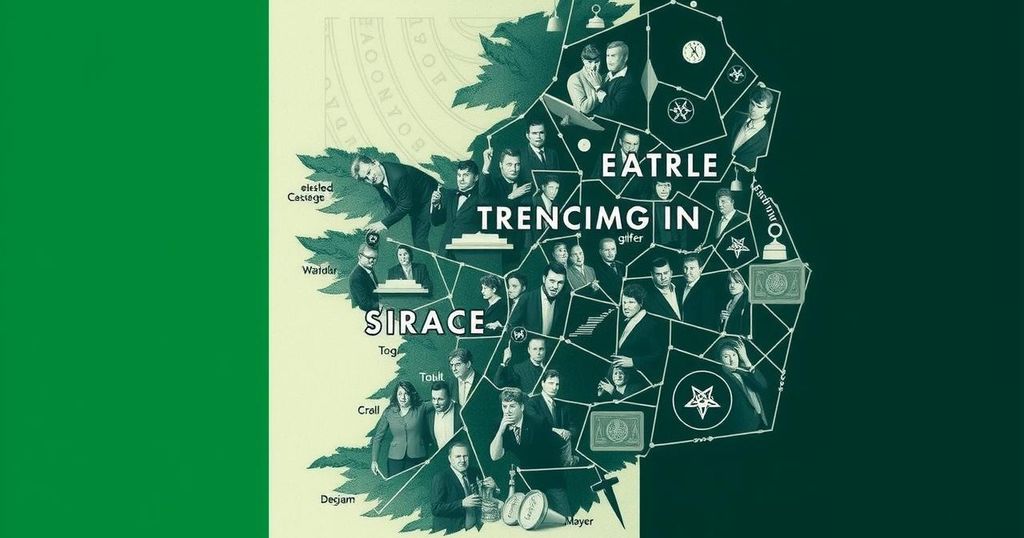Irish Election Results: A Continuation of the Status Quo Despite Underlying Changes

The Irish general election saw the continuation of Fianna Fáil and Fine Gael, though their combined vote share remains low at 43%. Sinn Féin, previously anticipated to gain power, instead lost support due to internal issues and rising anti-immigrant sentiment. Centre-left parties, which performed well, now face decisions on their role in governance amid high public expectations. The political atmosphere reflects a need for change despite the appearance of stability.
The recent Irish general election has resulted in the continuation of the political dominance of the incumbent parties, Fianna Fáil and Fine Gael, whose combined share of the vote remains stable at approximately 43%. Despite their historical significance, there is an undercurrent of change that suggests their appeal is diminishing among an increasingly diverse electorate. While Fianna Fáil, which has regained some strength, and Fine Gael have successfully navigated crises such as Brexit and the pandemic, their inability to secure more than half the electorate’s loyalty leaves them positioned at odds with the public’s expectations for change.
Sinn Féin, led by Mary Lou McDonald, was anticipated to rise significantly in power, capitalizing on issues such as housing and healthcare. However, the party’s share of the vote has declined, partly due to a shift in support towards right-wing candidates who tapped into anti-immigrant sentiments. Furthermore, allegations of internal scandals have damaged Sinn Féin’s image, leading middle-class voters to gravitate towards the centre-left parties, Labour and the Social Democrats, which performed better in the election, highlighting a desire for progressive alternatives.
This electoral outcome presents challenges for the centre-left parties, who must now deliberate whether to join forces with the ruling parties or position themselves as the leading alternative to Sinn Féin’s waning influence. Given the incoming government’s financial resources, there are significant opportunities for infrastructural improvements and public services. However, there are underlying concerns about maintaining this fiscal luxury amidst external pressures, such as potential trade tensions initiated by Donald Trump with the EU.
The recent elections have revealed that Ireland’s political landscape, while seemingly stable, is undergoing subtle transformations. The diminished support for the historical duopoly of Fianna Fáil and Fine Gael and the unexpected weakening of Sinn Féin suggest that voters are craving a new political narrative. The ongoing challenge lies in meeting heightened public expectations while tackling the complexities of governance in a diversely populated society.
This article examines the dynamics of Ireland’s political landscape following the recent general election. It highlights the enduring power of the incumbent parties, Fianna Fáil and Fine Gael, as they continue to govern despite a decline in overall voter loyalty. The article also discusses the unexpected setbacks for Sinn Féin, once seen as a rising force, and the shifting loyalties of Irish voters amidst socioeconomic changes and internal party controversies. It provides context on the broader implications for future governance in Ireland, especially regarding the fiscal environment and public service demands.
In conclusion, the recent Irish general election illustrates a complex political landscape where incumbents retain their positions amidst declining voter loyalty. Sinn Féin’s failure to capitalize on its earlier momentum signifies shifting public sentiments, with a call for solidarity among centre-left parties. The incoming government is poised to face significant challenges as it attempts to fulfill high expectations in the wake of fiscal prudence, all while addressing the concerns of an increasingly diverse electorate.
Original Source: www.theguardian.com






